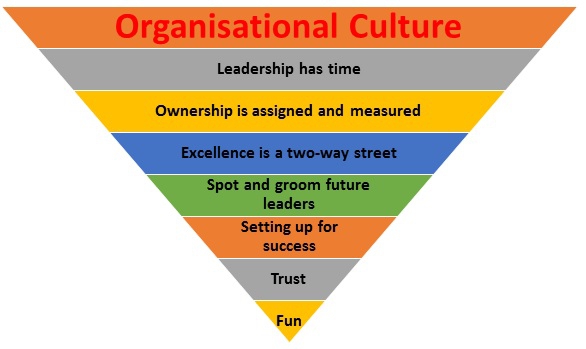It is the culture of an organisation that lends it an identity and makes it a winner.
How often have we experienced positive vibes on walking into an organisation? Ever left with an indelible impression on dealing with an organisation? What makes an organisation seem distinctively better than the rest?
The three levers that drive an organisation – business, process and people, are supported by the fulcrum – culture! It is this culture that gives an identity to an organisation — one that eventually makes an individual feel nice dealing with that organisation. According to me, culture cannot be defined in totality; it needs to be felt and experienced. It evolves when decision makers continuously ask themselves the following:
• How do I want to be seen?
• What am I doing to be seen the way I want?
• Are the above in line with the rest of the decision makers?
These, by far, are the most intense questions, that, when introspected and executed, lead to the creation of a distinctive culture.
My experience of working and collaborating with several organisations across geographies, has led me to believe that the genesis of a great culture lies in these seven foundations:
1. Leadership has timeSome of the most exciting organisations have their leaders constantly carving out time to discuss matters that often seem ‘soft’ but are pivotal to building a great culture. Leaders will necessarily block time to discuss people values, observatory findings and overall sentiments. Very simply put, ‘thought leadership’ becomes a continuous virtue! Leaders across levels are adept and inherently hard coded to building bridges and strong relationships with their teams.
2. Ownership is assigned and measuredWinning organisations emphasise on ownership for every action within the organisation. Clearly laid out measurables with owners assigned for activities are a common practice in such organisations. This makes for accountability and also develops owners into becoming effective managers.
3. Excellence is a two-way streetGreat organisations believe that demanding excellence is a two-way street. As much as a great organisation demands excellence, it also acknowledges that employees can and should demand the same in return. An ideal organisation will always ask the employees what they need from the organisation to make it happen. It is this reciprocal activity that makes way for a highly engaging atmosphere in such companies.
4. Spot and groom future leadersGood organisations are always on the lookout for young talent within. Accelerated programmes and effective succession planning become integral to such companies. Behind this is a robust system that acknowledges performance, measures potential and quickens internal growth for employees.
5. Setting up for successMy interactions with several winning organisations has made me believe that it is the system that sets employees up for success. This implies that everyone within such organisations is genuinely interested in winning collectively. They believe in what can be termed as a collaborative business experience — a culmination of several habits like leading by example, continuous communication and constructive feedback.
6. TrustThe core of any leadership is trust. Managers in winning organisations realise the criticality of their teams to trust them if they expect the teams to be fully productive. Such organisations have non-conflicting leadership teams who put in a continuous effort towards building a positive employee experience. It is a known fact that organisations that have great culture necessarily have leaders with high empathy and EQ.
7. FunWinning organisations are serious about fun! One of the values that forms the cornerstone of such organisations is the importance given to creation of a destressing environment for employees. Today organisations realise that investing in a design that allows employees to take short breaks while at work, play a game, have me-time, get access to the best movies/magazines or even sponsored tickets for a concert, are all very significant in bolstering productivity.
And finally, here are two quotes that aptly summarise the importance of building a great culture!
“Customers will never love a company until the employees love it first” — Simon Sinek, Author, Start with Why
“It doesn’t make sense to hire smart people and tell them what to do. We hire smart people so they can tell us what to do” – Steve Jobs, Apple
(The author is director – Global Human Resources with e-Emphasys, a global product company.)




3 Comments
Good Article. Communication also to be included as step number 2.
Hi
Good note. The most important is that the top boss must live with the values that he expects others to live with to build and sustain culture.